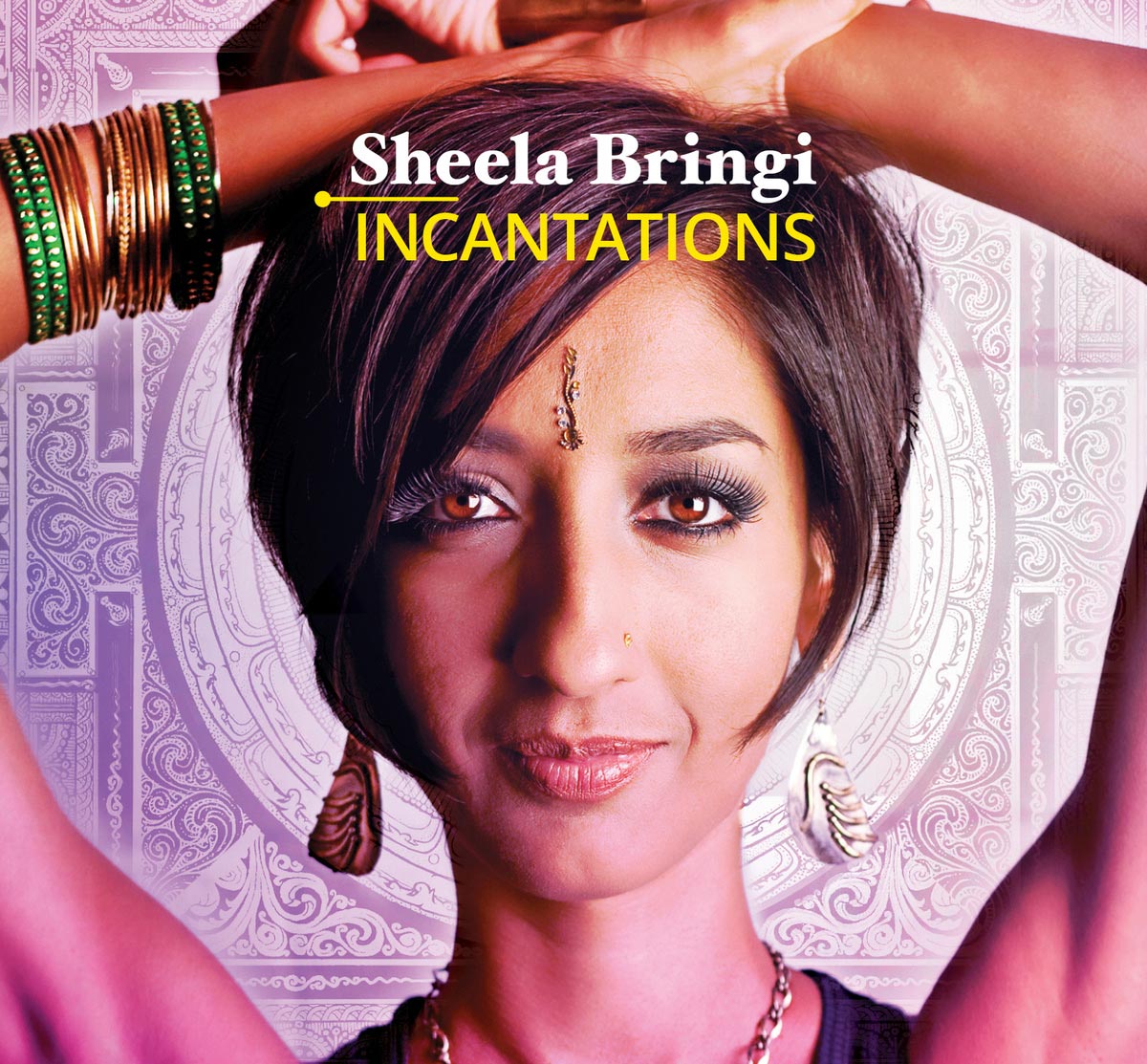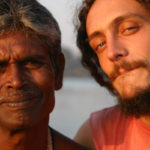
There are plenty of albums that attempt to mix traditional and contemporary influences. Sometimes they succeed, often they do not. Indian American Sheela Bringi succeeds, combining Indian classical music with American blues and jazz on Incantations. The multi-instrumentalist’s debut album, co-written and produced by long time collaborator and Georgia native Clinton Patterson, is a mysterious, uninhibited yet refined affair. Bringi is a vocalist who also plays harmonium, harp, manjira and bansuri. She has spent over 15 years learning north Indian classical music traditions and has studied with Indian flute master G. S. Sachdev and sarod virtuoso Aashish Khan, in addition to working with Cecil Taylor, Fred Frith and Meredith Monk. Bringi draws on the diversity of these experiences in her personal interpretations of Sanskrit mantras.
Incantations begins with the sparse, sustained sound of “Invocation” before switching gears to “Sri Krishna” featuring Aditya Prakash on vocals. Hip-hop/soul duo Gene Coye and Ben Shepherd provide the rhythm on drums and bass. The song builds with intensity as Bringi and Prakash exchange vocals while Coye and Shepherd rise from the background with a propulsive jazz-funk fusion before settling back down again.
“The Three-Eyed One” shifts the mood again in a scorching tribute to Shiva, referencing the Maha-Mrityunjaya Mantra. The droning undertone of the didgeridoo evokes a dark trance surrounded by clapping and chanting. Jon Armstrong’s tenor saxophone and Clinton Patterson’s trumpet play with their improvisations, straddling the line between harmony and dissonance to perfection. The Maha-Mrityunjaya Mantra is a strong mantra that forms a wall of protection against death and evil forces and that intensity is felt throughout the track.
“Bhajamana Ram” features Bringi on the harp accompanied by the serenity of Micah Sheiner’s Himalayan singing bowls. The Balkan-inspired piece praises Rama, one of the protagonists in “The Ramayana.” Switching the harp for the bansuri, “Raga Khammaj” showcases Bringi’s talent on the bamboo flute with some excellent improvisation over a slow raga. “Peacock” is driven by Javad Butah’s tabla playing underneath Bringi’s harp and Patterson’s trumpet. Patterson handles the supporting vocals well, but it is his trumpet playing that really grabs the listener’s attention. His slightly muted tone at times sounds distant, but his slow, wide vibrato is warm and tender.
“Buffalo-Demon Slayer” is an intoxicating piece of Balkan klezmer funk fueled by Leonice Shinneman’s thavil drums. Combined with Bringi’s harmonium, Ben Shepherd’s rumbling bass and a three-piece woodwind/brass arrangement, “Buffalo-Demon Slayer” chugs along with purpose. As the pressure builds, Robby Marshall’s clarinet soars above the group with wild improvisation. This powerful song of praise features excerpts from the Mahishasuramardini Stotram (Prayer to the Goddess who killed Mahishasura).
“Moonrise Divination” slows the tempo, creating a cleansing atmosphere with harp, singing bowls and mellow trumpet to set the scene for what is to come. “Saraswati” starts as an extension of the previous track with harp and Bringi’s voice. She sings a repeated verse, harmonizing with her harp and Patterson’s trumpet. Amrita Vaz’s violin and viola string arrangement gives the piece a subtle sustain.
“Raja Ram” picks up the pace to wrap up the album. Bringi plays harmonium, bansuri, manjira and sings on this lively, percussive piece. Patterson adds acoustic guitar and the blues riff he repeats is played sitar-like, blending in naturally with the other instruments. It is a fitting end to an engaging record that combines plenty of musical influences into a contemporary form of Indian music. Sheela Bringi’s voice and vision, and her partnership with Clinton Patterson on this debut production, offer us hope for a bright musical future.
Originally published in RootsWorld Magazine.




Be First to Comment